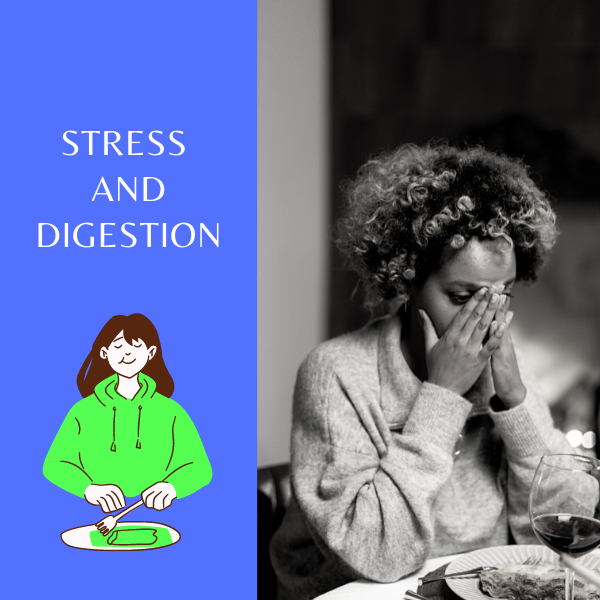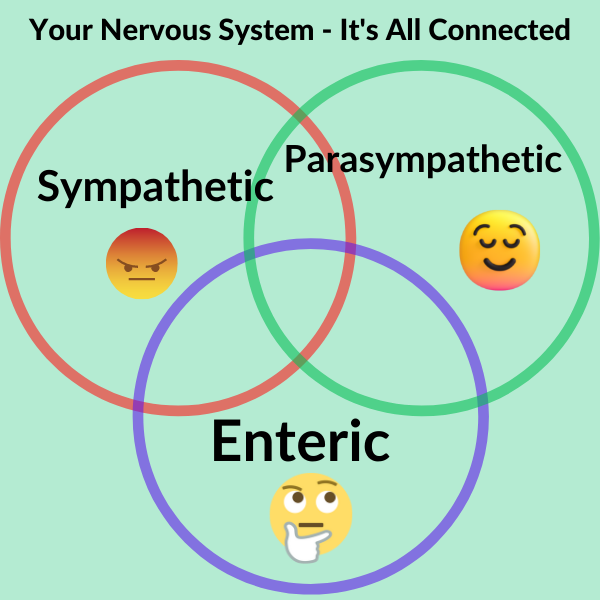Most of know that stress affects our digestive system. Even people without digestive issues are familiar with the indigestion and stomach cramping that often accompany stressful situations. It could be from being nervous, scared, or grieving. Typically, we don’t eat during those times because we don’t feel hungry. It’s easy to listen to our bodies during short bursts of stress that cause us to lose our appetites.
So why then is there “stress eating?” For one thing, food also comforts us. So why our bodies may not be digesting optimally, that chocolate chip cookie or ice cream makes us feel better mentally. The other thing is other people try to get us to eat. It’s one of the first things people do when they know someone is going through a hard time, especially grieving a loss.
The thought is that you will get sick if you don’t eat and, “you need to keep your strength up.” The question is should we eat when our bodies are clearly telling us not to? It’s not a completely simple answer. Skipping a meal or two, or just eating at a different time than a person normally does is one thing, but if that feeling lasts long term, a person may need some help from a counselor or doctor.
But this temporary halt of food intake may be what’s needed when our bodies are stressed, particularly if we already have digestive issues like Inflammatory Bowel Disease (IBD) or the catch-all irritable bowel syndrome (IBS).
How stress affects the digestive system
Without getting too technical, here is an overview of how stress impacts our digestion. Even if you don’t know the names, you are probably familiar with the sympathetic and parasympathetic nervous system. They are a part of the autonomic nervous system that controls the body functions that we don’t think about such as breathing, heartbeat, temperature, blood pressure, etc.
The sympathetic nervous system is activated when we are stressed. The parasympathetic nervous system calms that stress down. There is a third system that you may be less familiar with and that is the enteric nervous system, which helps to regulate digestion. Both the sympathetic and parasympathetic nervous systems interact with the enteric nervous system and that tells our bodies how to react in different situations.
When we are stressed, the sympathetic nervous system is activated. This “fight or flight” response essentially shuts down the digestive system while we deal with whatever is causing the stress. We might think of fight or flight as a response to an immediate danger like getting mugged, someone breaking into our house, or being chased by a bear, but the truth is this response is activated by any stress.
Stress could be something that is an immediate danger, but it also encompasses grief, being very nervous like for a job interview or public speaking, getting in an argument with someone, the kids acting up, a baby that won’t stop crying, a hectic schedule, or even something we see as very positive like going on a first date. In all of those situations our bodies are figuring out the appropriate reaction and it’s not worrying about digestion.
Ideally, we want to be in a parasympathetic, or calm state, when we eat so we can comfortably and efficiently digest our food. If we’re in a brief state of stress, our bodies are probably telling us not to eat and we should listen to that signal.
What about chronic stress?
Chronic stress, which can stem from many things like an unsatisfying job, an unhappy or abusive relationship, long-term illness for yourself or a loved one, financial worries, or anything that is causing stress that doesn’t go away can be more difficult to manage. In these cases, getting help may be essential for maintaining health. In a particularly bad situation like abuse, legal help may be needed, but in other situations the help of a counselor, health coach, psychologist, clergy, or even a good friend could help to get you back on track.

A calm mind helps digestion
Eating nutritious meals and nourish the body will also help mindset. What I find important for myself is not to use stress as an excuse to eat poorly. It’s so easy to tell ourselves that we deserve that donut or cake when we’ve been dealing with so much stress in our lives. With IBD, that’s just not a smart choice and could lead to health problems and ultimately more stress.
Tips for getting to a calm place before eating:
- Take a walk at a comfortable pace
- Find a comfortable chair and read a book
- Listen to music
- Find a peaceful spot and meditate for a few minutes
- Take a bath
- Take a nap
Stay tuned for more education pieces from Happy Gut For Life and be sure to subscribe to have recipes and tips emailed directly to you.
- SCD “Oreo-Style” Vanilla Sandwich Cookies - November 17, 2025
- Grain-Free Red Lentil Bread: Ancient Nutrition Meets Modern Gut Health - November 5, 2025
- SCD Pistachio-Date Thumbprint Cookies Inspired by Ancient Mersu - October 26, 2025




Follow Happy Gut For Life